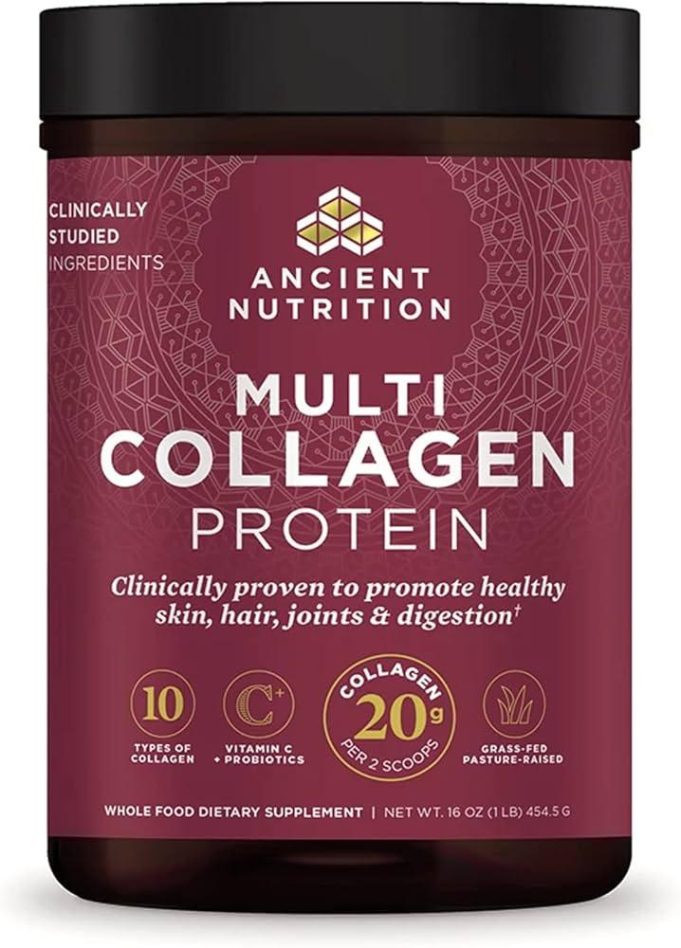In the ever-evolving landscape of skincare, where promises of youthful radiance are as common as the sunrise, one ingredient has consistently captured the attention of beauty enthusiasts and scientists alike: collagen. Touted as a miracle worker for improving skin elasticity, collagen has found its way into creams, supplements, and even coffee. But does it truly live up to the hype, or is it just another fleeting trend in the quest for eternal youth? As we delve into the science and the stories behind this revered protein, we aim to unravel the truth about collagen’s role in enhancing skin elasticity. Join us on this exploration as we separate fact from fiction and discover whether collagen is indeed the fountain of youth it’s claimed to be.
The Science Behind Collagen and Skin Elasticity
Collagen is a fundamental protein in the body, playing a crucial role in maintaining skin structure and resilience. As we age, our body’s natural collagen production diminishes, leading to reduced skin elasticity and the formation of wrinkles. This has spurred interest in collagen supplements and treatments as potential solutions to combat the visible signs of aging. But how does collagen contribute to skin elasticity?
At the molecular level, collagen fibers form a network that supports the skin, much like scaffolding in a building. This network provides tensile strength and elasticity, allowing the skin to return to its original shape after being stretched. Here’s how collagen impacts skin health:
- Hydration Boost: Collagen attracts moisture, which helps keep the skin plump and hydrated.
- Improved Elasticity: By replenishing collagen levels, the skin’s elasticity is enhanced, making it more resilient.
- Wrinkle Reduction: Higher collagen levels can reduce the depth and appearance of wrinkles.
While the science supports collagen’s role in skin elasticity, individual results can vary based on factors like genetics and lifestyle. Nonetheless, incorporating collagen-rich foods or supplements into your diet, along with a healthy lifestyle, can support skin health over time.
Understanding How Collagen Works in the Body
Collagen is a fundamental protein that serves as one of the main building blocks for your bones, skin, hair, muscles, tendons, and ligaments. In the skin, collagen acts as a scaffold that provides strength and structure. It plays a critical role in maintaining skin elasticity, allowing your skin to stretch and move while returning to its original shape. As we age, the body’s collagen production naturally decreases, leading to a reduction in skin elasticity, which often manifests as wrinkles and sagging.
How does collagen contribute to skin elasticity? Here are a few key mechanisms:
- Hydration Boost: Collagen helps the skin retain moisture, which is essential for maintaining a plump and youthful appearance.
- Structural Support: By forming a network of fibers, collagen provides a framework that supports the skin’s outer layer.
- Cell Renewal: It assists in the turnover of skin cells, helping to maintain a smooth and even complexion.
While collagen supplements are popular, it’s important to consider that the body’s ability to absorb and utilize them can vary. Factors such as diet, lifestyle, and genetic predisposition can influence how well collagen works within your body.

Evaluating Clinical Studies on Collagen Supplements
In the pursuit of ageless skin, collagen supplements have gained a spotlight, prompting numerous clinical studies to assess their efficacy. When examining these studies, several key factors must be considered to determine the true impact of collagen on skin elasticity. Firstly, the methodology of each study is crucial. It’s important to consider whether the studies are randomized, double-blind, and placebo-controlled, as these elements help ensure the reliability of the findings.
- Sample Size: Larger sample sizes generally provide more robust data.
- Duration: Studies conducted over several months may offer more comprehensive insights into long-term effects.
- Types of Collagen: Different types and sources of collagen (bovine, marine, etc.) may yield varying results.
- Measurement Techniques: Objective measures like skin elasticity meters are more reliable than subjective self-assessments.
Furthermore, while some studies suggest improvements in skin elasticity with collagen supplementation, the magnitude of these effects can vary widely. This variability often stems from differences in the collagen formulation and dosage used in trials. Ultimately, while the promise of collagen supplements is enticing, a critical evaluation of clinical studies is essential to discern their true potential in enhancing skin elasticity.

Expert Tips for Enhancing Skin Elasticity with Collagen
Collagen is a powerhouse when it comes to maintaining youthful, resilient skin. Here are some expert tips to maximize its benefits for skin elasticity:
- Choose the Right Form: Incorporate collagen supplements like hydrolyzed collagen, which is more easily absorbed by the body, into your daily routine. Alternatively, opt for topical products enriched with collagen-boosting ingredients such as retinol or peptides.
- Pair with Vitamin C: This vitamin plays a critical role in collagen synthesis. Adding a vitamin C serum to your skincare regimen can enhance collagen production, helping your skin appear firmer and more elastic.
- Hydrate and Nourish: Keep your skin well-hydrated with a moisturizer that locks in moisture and contains hyaluronic acid, which works in tandem with collagen to improve skin texture.
- Protect from UV Damage: Sun exposure can degrade collagen fibers. Use a broad-spectrum sunscreen daily to safeguard your skin and support the collagen’s structural integrity.
By integrating these strategies, you can effectively harness the power of collagen to enhance your skin’s elasticity and maintain its youthful glow.






























